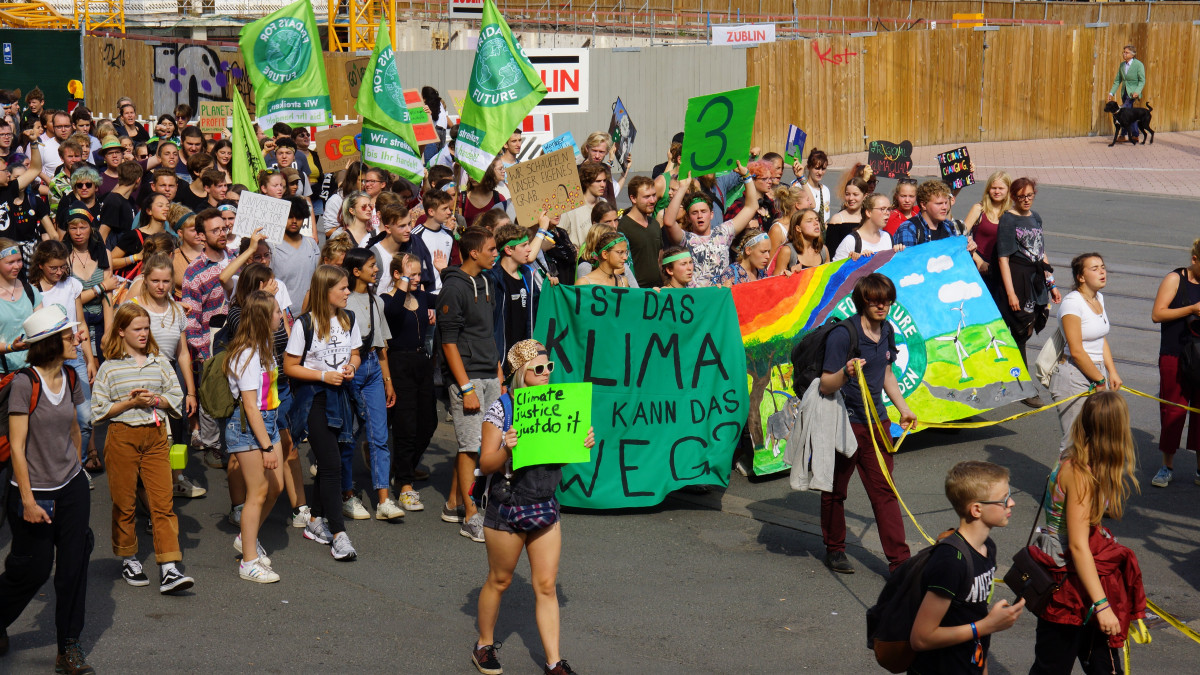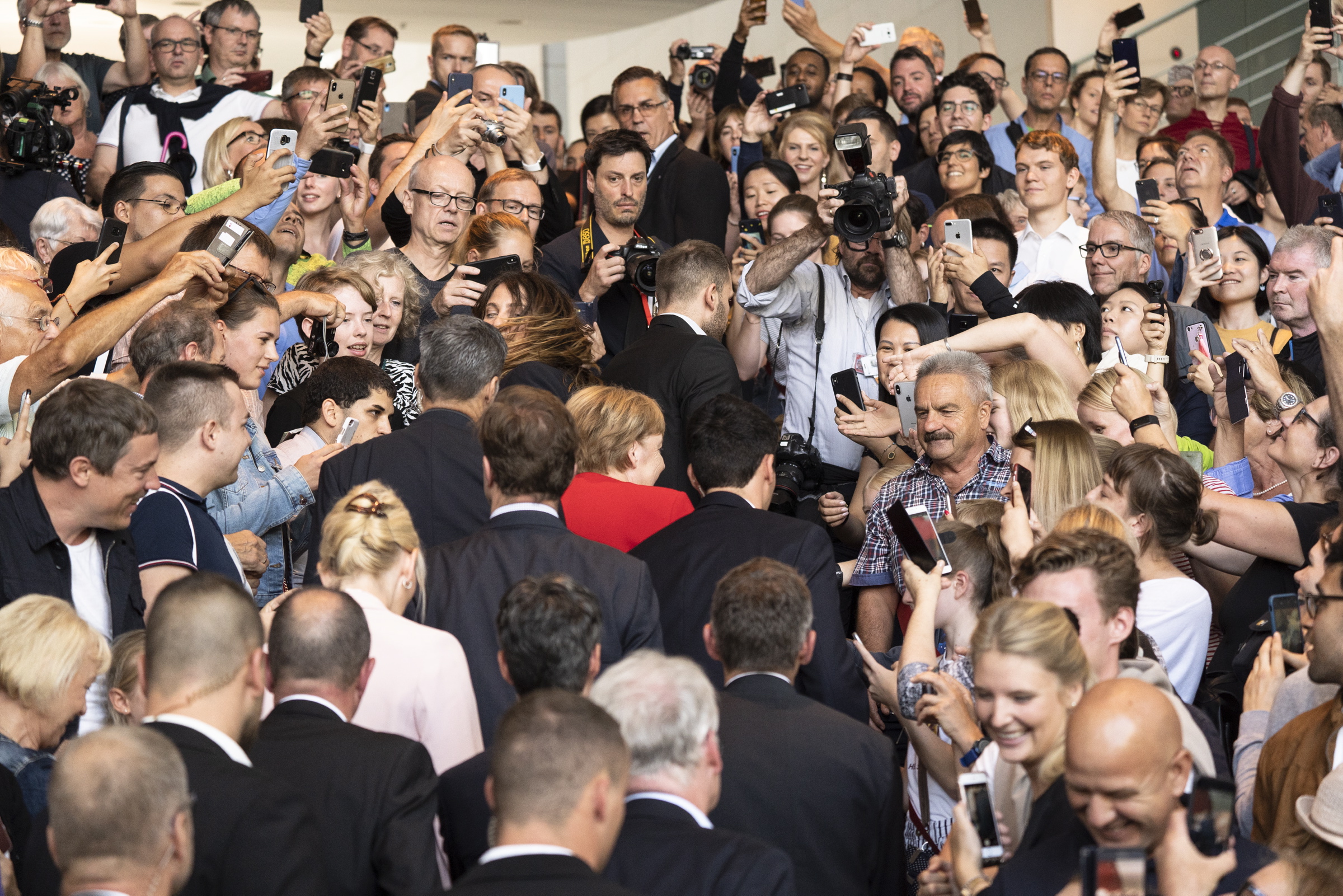Merkel’s coalition set to survive despite parties’ turmoil – analyst
Clean Energy Wire: In the national election campaign of 2017, migration, integration and security were the dominating topics, and climate and energy hardly played a role in voters' decisions. Now, two years later, Chancellor Angela Merkel says the government must end its "easy-peasy" approach to climate policy. The climate cabinet has promised key decisions for 20 September and CSU head Markus Söder has discovered the topic for himself. What happened?
Gero Neugebauer: Migration still matters in Germany and continues to be at the top of voters' concerns, but there has indeed been a change. Climate and energy policy has come out on top, because the discussion around it has mobilised a group in society whose ability to influence politics has so far been underestimated – mostly young protesters. Unconventional forms of politics have gained traction. In combination with what the people have perceived themselves – a change in weather patterns, more storms, heat, drought – the protesters are responsible for putting the topic into focus.
Will climate policy remain an important topic for voters in Germany?
You have to take two factors into account: First, there is the competition between parties. If a party realises it does not cover a certain topic sufficiently and is in danger of losing its majority and ability to lead a government, then it must react. The conservative CDU/CSU alliance has realised this due to the success of the Green Party. Former Social Democratic party head Andrea Nahles had said the SPD is not the Green Party, which led voters to lose trust with regards to climate and energy policy.
And this is where the second factor comes in, which plays a much bigger role: Parties must react to changes in society. Climate change has a growing importance in the living conditions of voters. Of course, conditions differ, so it is not yet a topic which is equally important to all Germans, but it is growing in importance to a majority.
At the moment, the economic situation in Germany is good, and voters are worrying about climate change. However, should the situation change and force people to look more at their individual and immediate conditions, the stance on climate could change – especially if jobs are threatened due to certain energy policy decisions.
Despite a negative atmosphere in the SPD, I don't suspect that the coalition will be terminated.
A recent survey showed that a majority thinks the climate rhetoric by CSU head Söder is not credible. Will it pay off at the polls nonetheless?
Forecasts are always difficult to make, but Söder is someone who reacts quickly to changing moods in the population and he is also willing to change his opinion. I don't know if Söder has actually turned into a "green politician", but he has reacted politically by creating a new strategy: the CSU as the party of modern Germany.
Elections are increasingly defined by moods, and parties who do not react to this are losing out. So I think Söder has jumped on the topic for tactical reasons. However, there is an electorate in Bavaria made up of farmers who experience the effects of climate change directly, who traditionally vote CSU.
The governing coalition has agreed to jointly assess the work of the first year and a half by mid-October, after which the Social Democrats will decide whether to stay in the grand coalition. Some SPD members have said climate change will be a key issue in this evaluation. Is this credible?
Climate has not been a top priority for the SPD and it has always dealt with the topic in connection with saving jobs. To put it bluntly, the party has not put forth any climate initiatives that would lend credibility to the threat to leave the coalition if nothing happens on climate.
The coalition treaty from early 2018 should be the basis of the assessment of the grand coalition's output. What has been accomplished? How far is it in line with the goals of the parties? And what opportunities does the coalition have to get the rest done, taking into account the current situation in the coalition. When the treaty was agreed, climate and energy did not have the same importance as they do now.
What are the topics that will decide whether the coalition lasts? Do you think it will last?
I don't think the SPD is interested in new elections. Looking at the SPD's interests and the current levels of voter support, it should be careful in regards to leaving the coalition. For new elections, the party lacks a long-term programmatic alternative, a personnel alternative. In some policy fields it has alternative offers, such as tax or pension policy – but not more. The party has to ask itself whether that's enough to enter an election campaign and be successful. I do not see this. With the current offer, the party will not excite voters and mobilise its supporters, and it likely also lacks money for a campaign.

Despite a negative atmosphere in the party, I don't suspect that the coalition will be terminated. It would come as a surprise to me. In the past, we have also seen that the different levels in the party make different decisions, such as the parliamentary group or the party base. The party apparatus has an interest in the financial means that it needs to function well. An election result of less than 20 percent would mean significantly fewer funds and possibilities to finance campaigns. So we have to grind our teeth and clench our fists, but continue!
And the Union [conservative CDU/CSU alliance] has a problem with its likely candidate for chancellor. Elections in the eastern German states are an additional reason to act carefully. In view of bad election results one should not immediately say that's it. 'Better dead than a slave' is no motto to fight with in the competition with other parties.
Would bad results for the governing parties in the upcoming elections in eastern German regions mean the end of the coalition?
These are not elections that will decide national politics, or the policy of any party. However, they are important for the constellation in Germany's party system. The competition among parties depends increasingly on the far-right Alternative for Germany – with which no other party wants to enter a coalition.
Chancellor Merkel has said she will not seek re-election. Does she still have the power to move something on climate and energy policy? Does she want to?
She must try, as it is the dominating topic. Other topics like migration and integration are slowly losing relevance. Of course, we do not know how other crises and topics will develop, but at the moment climate is a decisive topic. It's especially important to deliver, because the parties are grappling with historically bad approval ratings.

